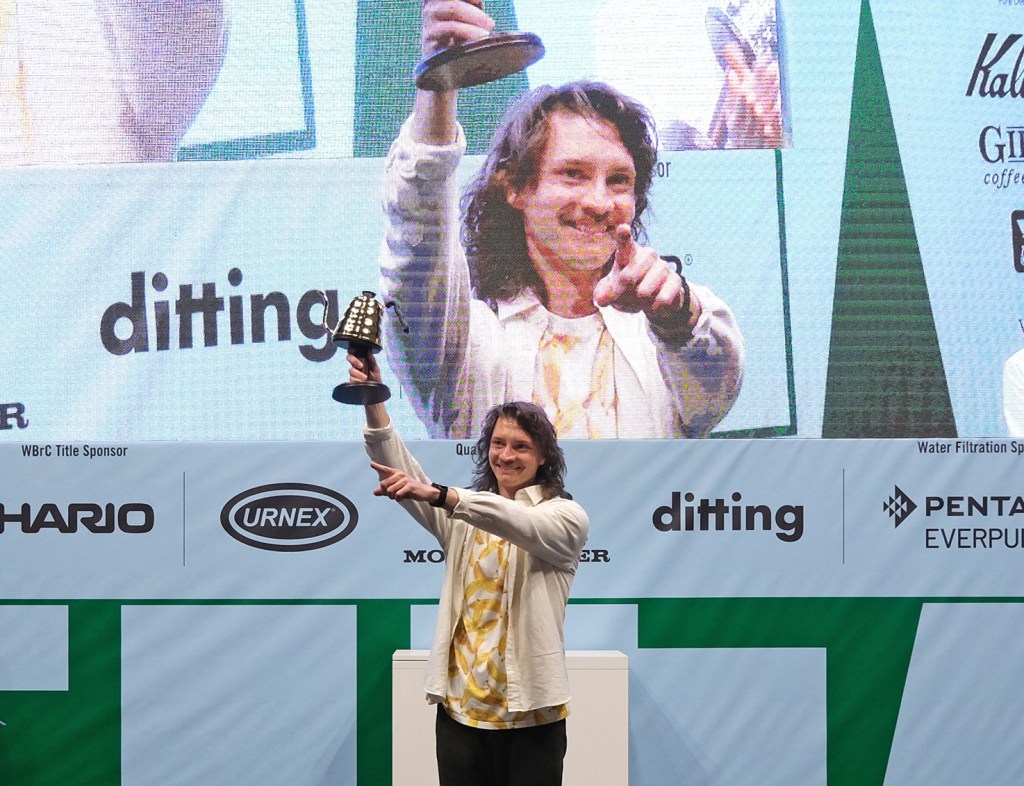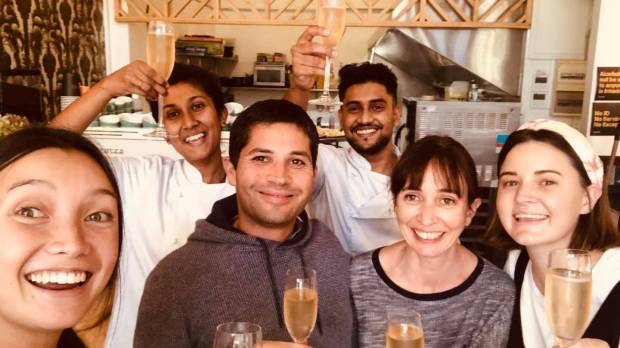A benchtop coffee roasting machine designed and manufactured in New Zealand has achieved global recognition through the 2021 World Brewers Cup competition, part of the 2021 World Coffee Championships in Milan.
The Kaffelogic home roaster, designed in Dunedin and manufactured in Christchurch, produced the roasted coffee beans used by World Brewers Cup winner Matt Winton, who represented Switzerland in the championships.
John Robson, marketing director at Kaffelogic, said the Brewers Cup competition promotes the craft of manual coffee brewing – “the purest form of coffee brewing” – and recognises those who excel in producing hand-brewed filter coffee on a global scale.
“We’re thrilled with Matt’s success, which confirms Kaffelogic as a world class product. Even more exceptional is the fact that Kaffelogic is a compact, benchtop appliance – tiny compared with large professional coffee roasting machines,” he said.
“Matt’s win proves that the Kaffelogic roaster can produce roasted coffee beans of the highest quality, which enabled him to deliver his world championship winning brew.”
In the championship competitors prepare and serve three individual beverages for a panel of judges and must also accompany their beverage preparation with a presentation.
Matt Winton, who worked alongside coach and friend Sam Corra to produce the blend of roasted beans used in the competition, said the versatility of the Kaffelogic roaster meant they could quickly and easily fine-tune the roast profile of the coffees used.
“I’m so impressed by the work Kaffelogic has done to produce an affordable roaster that produces incredibly high quality results. It’s an amazing little roaster and the quality of the results speak for themselves.”
In addition to Matt’s first place in the World Brewers Cup, Kaffelogic-roasted coffee won fifth place in the World Barista Championship, part of the same World Coffee Championship event in Milan.
Competitors prepared four espressos, four milk drinks, and four original signature drinks to exacting standards in a 15-minute performance set to music. Martin Shabaya of Kenya used coffee roasted on a Kaffelogic machine for his fifth place winning ‘milk coffee drink’ routine.
Kaffelogic was launched in 2019 following several years of development and trials by the company’s founder, Chris Hilder, along with investment from John Robson and former All Black Reuben Thorne. Units have now been sold in over 20 countries around the world.
The origin of the product is a classic Kiwi ‘back shed’ story, said Mr Robson.
“Chris spent four or five years figuring out how to roast coffee at home in Dunedin, initially using a popcorn maker. He learned from trial and error that in order to achieve the perfect roast, you need to control heat and airflow at different stages during the roast.”
Leveraging his background in software engineering, Mr Hilder developed software to incorporate into the roaster, so he could replicate the perfect roast over and over again with the push of a button.
“Chris’ vision to make coffee roasting a ‘thing’ for the home coffee lover is now being realised. Users can simply dial in the roast they like, to consistently produce great coffee in their own kitchens.”
Kaffelogic units are currently manufactured under contract in Christchurch, but the company plans to open a factory in Dunedin next year, bringing production back in-house to meet forecast global demand.
“While we haven’t been able to exhibit the product overseas in the past couple of years, Covid-19 has actually helped sales, as coffee lovers can buy the machine online to create a great coffee experience at home,” said Mr Robson.
Investment into the company this year by Christchurch-based investor Rob Farrell is enabling the company to focus its attention on growing sales in Europe, the USA and Japan, Mr Robson said.
“We have recently appointed new distributors to take the product to more offshore markets from 2022, including big launches in the USA and Japan. Both these markets represent massive sales potential, supported by the recent results in Milan which are bringing global attention to the Kaffelogic machine.”








